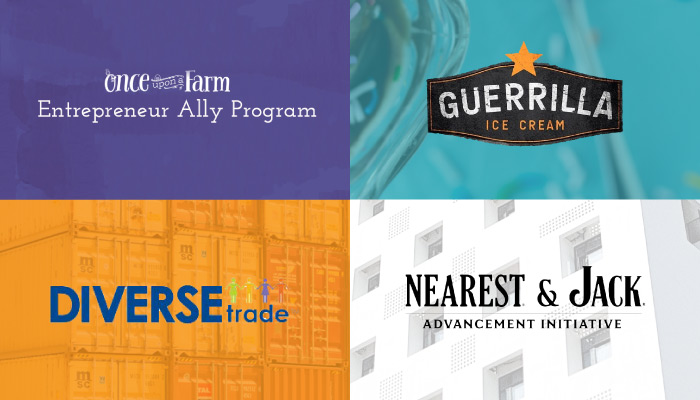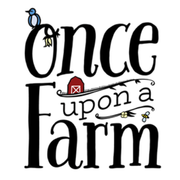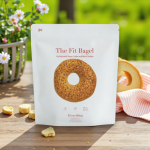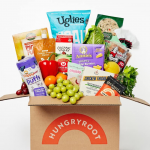Industry Launches Initiatives to Support BIPOC Entrepreneurs

In June, both leaders and ordinary people who work in the food and beverage industry spoke out against racism as national protests in response to the killing of George Floyd brought to light issues surrounding systemic inequality.
Now, brands, distributors, retailers and advertising agencies have begun to take action, or build upon previously established efforts to address this inequality, particularly through programs and initiatives designed to support the advancement of BIPOC entrepreneurs.
In one recent rollout, Once Upon a Farm (OUAF) last week announced its new Entrepreneur Ally Program, partnering with three medium stage minority-founded brands — Partake Foods, A Dozen Cousins (in which OUAF CEO and co-founder John Foraker is an investor) and Pipsnacks — to offer advice and resources over at least the next year.
“There’s just so many things about the business side that have to change between that small stage and that medium stage, the kind of people you need, the kind of systems you need, how much financing you need, the kind of competition you’re competing against,” Foraker said. “So we were like, ‘I think we’ve got a lot of experience in this company of people doing that. Why don’t we find three companies and ally with them to help them do that?’”
OUAF has established a dedicated team within the company to provide this industry expertise, advising on everything from distributors to retailers to strategic hires. In addition to ongoing conversations, founders and Foraker will have quarterly benchmark meetings.
Foraker hopes the program will inspire other companies to establish similar initiatives, adding that he’s happy to share materials and best practices for developing this program with other leaders. He said it was created in order to “show up” more for BIPOC entrepreneurs, “much more than just having a written statement and posting a black square,” as occurred on social media over the summer. The hope is that entrepreneurs can form larger networks or become investors themselves, serving as role models for future BIPOC-founded companies.
“If we could help all three of these companies be wildly successful and have their dreams come true, we think that’ll make the space better, more hospitable and successful for minority-founded and owned brands in the future,” Foraker said.
Earlier this summer, premium spice brand Burlap & Barrel formally launched a pro bono consulting service offering assistance to BIPOC entrepreneurs on issues such as ecommerce, international shipping, logistics and food safety. The service launched under the name Guerilla Ice Cream, a nod to co-founders Ethan Frisch and Ori Zohar’s first food company 10 years ago. Frisch said the first company was launched “without a lot of risk of failure” which he’s realized was a privilege and “not something that a lot of entrepreneurs have had the opportunity to do.”
While Frisch said he and Zohar have been offering the consulting service for some time, they recently decided to formalize the program in order to bring more awareness to it — and the issues at hand. The hope is that by bringing the program to light, the duo can reach (and help) more entrepreneurs.
Frisch and Zohar also have begun building out a database of those with expertise in fields such as marketing, PR and food safety who can then be matched with minority entrepreneurs to provide better insight into topics beyond Frisch and Zohar’s realms of knowledge. On the brand side, Burlap & Barrel is also using its own ecommerce platform to support BIPOC and woman entrepreneurs, collaborating on co-branded products that use the brand’s spices, from marmalade to soap, and is currently working with Be Social Change to develop a series of virtual workshops discussing how to build anti-racism into businesses. The workshops, covering topics such as hiring, fundraising, product development and customer acquisition, will begin in October.
“What we’re trying to do is build a little bit more of a community, create a system where people can ask for help,” Frisch said.
The efforts expanded into spirits and beverage as well, with whiskey makers Jack Daniel’s and Uncle Nearest joining forces on the Nearest & Jack Advancement Initiative this summer to increase diversity in the American whiskey industry. Together the companies committed a total of $5 million to the initiative, which will establish the Nearest Green School of Distilling, the Leadership Acceleration Program (LAP), providing distilling industry mentorship, and the Business Incubation Program (BIP), offering apprenticeships.
“Generally, when companies talk about the need to improve diversity, few immediate action steps follow,” said Fawn Weaver, CEO of Uncle Nearest, in a press release. “Our group is different. We are doers, and we all agreed to work together to improve diversity in our industry.”
Through mentorship, established brands have the important opportunity to lend their expertise to BIPOC-owned brands for whom the roadmap to success is largely uncharted, said MaryAnne Howland, CEO of Ibis Communications and co-founder of natural products industry diversity and inclusion organization The J.E.D.I. Collaborative. But there’s no one right path — it’s simply about taking action, she said. While some brands may choose to establish in-house mentorship programs, like Once Upon a Farm, others may turn to partnerships with minority entrepreneur mentorship programs with organizations like the National Urban League, which has programs in place aimed at the advancement of Black entrepreneurs.
“That’s where the economic equity kicks in, when you are empowering businesses to be able to have opportunities to do business and to grow their companies,” Howland said. “That’s the impact.”
Beyond brand mentorship, other service providers for food and beverage businesses are also stepping up to provide BIPOC-owned entrepreneurs with opportunities for growth.
The discussions around race have also brought to light just how pervasive inequalities are, appearing in all parts of the food and beverage industry. To help combat this, distributor KeHE’s DIVERSEtrade program sources from minority-, women-, veteran- and LGBTQ-certified brands. The program, which launched last year, in part, highlights these brands at trade shows in order to draw more interest to brands that may have previously been overlooked by buyers. According to Laura McCord, KeHE’s executive director of sustainability & corporate responsibility, a main focus this year has also been identifying and connecting these brands with retailers such Albertsons, Safeway, Kroger and Target, which have increasingly placed greater emphasis on sourcing products from a diverse supplier pool.
Even smaller businesses are trying to make an impact. Hanson Dodge, a Milkwaukee-based marketing agency that has worked with CPG brands such as Oberto and G.H. Cretors, has pledged to donate 1,000 hours of work for BIPOC-owned businesses annually. A spokesperson for Hanson Dodge said that the cost of working with an agency can often be a barrier for early-stage BIPOC-owned brands which may struggle to get access to the same financial resources.
While it’s heartening to see distributors, retailers and other organizations working directly with BIPOC entrepreneurs, companies must want to meaningfully contribute to a brand’s growth in order to truly support BIPOC entrepreneurs. Particularly when it comes to financial investment, intent is still important, Howland said.
“Be mindful — are you investing in that business just because you want to throw a little money at them, or are you investing in them because you want them to grow?” Howland said.
Still, she added, there’s a benefit to both parties. Those tangible actions support BIPOC-owned business’ growth and also reflect favorably on the companies supporting them, building a “certain level of brand equity for diversity and inclusion that is invaluable,” Howland said.
“What the multicultural entrepreneurship world needs is more opportunities,” Howland said. “So whoever steps in there and creates an opportunity, understanding that there needs to be some hand holding through this process, but is willing to do it, that’s powerful.”
















